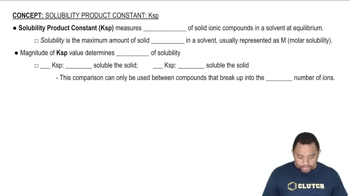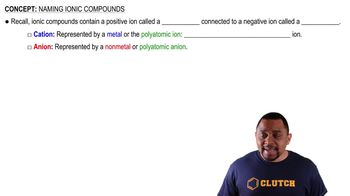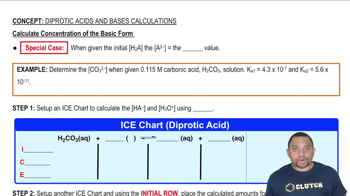Dissociation of Ionic Compounds
Ionic compounds, such as MgF2, dissociate into their constituent ions when dissolved in water. This dissociation is crucial for calculating Ksp, as it determines the concentrations of the ions in solution. For MgF2, one formula unit produces one Mg2+ ion and two F- ions, which must be accounted for when substituting into the Ksp expression.

 Verified step by step guidance
Verified step by step guidance


